|
Today I welcome children's author, Elizabeth Cummings to the blog to chat about her latest book, Rain Shaker, and her series, Vertyville. What has been your greatest influence in your writing? Was it your childhood experiences, or something else? My parents - they read to me every day and took me every week to our local library. Mum always kept a journal and insisted we did too, especially on holiday! We were always expected to write thank you letters at Christmas and birthday times and to also send our grandparents letters throughout the year. I was always close to my grandparents perhaps that is one of the reasons why! I also took part in drama groups and enjoyed storytelling with my sister and we spent hours making up little plays and then preparing ‘shows’ (including ticket sales and refreshments!) that we got our family to attend. You’ve studied Psychology. Has this influenced the type of stories you write? Absolutely - my first book was a mental health narrative about a sibling’s perspective on eating disorders. I have written about family illness, trauma and recovery and about bullying. I am currently working on a story about parental depression. (In fact, Elizabeth has written a whole series called, The Elephant in the Room. This series 'deals with tough health and wellbeing issues through the eyes of a young child. The purpose of the series is to help explain difficult health topics to younger children who made be going through tough times within their families as well as to empower them in seeing their role in the whole recovery process.' You can check out the series on Elizabeth's website.) You’ve written a number of books in the Verityville series. Why did you write this series? It’s a series that celebrates local people in my town and in a wider sense is a series that seeks to encourage gratitude for those who help us in our daily lives. I love hearing the stories behind the stories. The inspiration. What are the stories behind these particular stories from Vertyville? Wow! Great question! Well, at the moment there are six main characters who feature in each of the picture books: Audrey is a real person - she is a dear friend and is actually trained as a hairdresser but became a lollipop lady so that she could fit her work hours around her children’s schooling. She is so kind and her funny stories about what happened on the school crossing gave me the idea to write the book; The Sweetest Lollipop in the World. The Garbage Guy is about my friend Chris who worked for the council - cleaning the beach and the streets. We would go running early in the morning on the days he didn’t work and I would hear all his stories about the pollution he saw and the careless way people disposed of their rubbish. I got to know lots of his colleagues and they were always so friendly and helpful. I began to really notice all the good they did in their daily work and wanted to share these concepts in that book. Mrs T is a real teacher - she taught my daughters and had a great way of motivating the children and making them feel special. She’d go through their work with them and get the student to draw a ‘tick’ with the tip of a pencil case that looked like a pencil. Then she’d get them to shade over it in coloured crayon, and low and behold, tell them that the magic was in them as the tick showed through the colour. We were reminiscing about these happy days and so the idea of sharing this gorgeous story grew into the rhyming narrative Mrs T and the Magic Pencil! The story Brave and Strong All Day Long is once more about a local person. Fiona is one of the lifeguards at my local beach. She is such a positive female role model and over the years we have chatted about surf safety and her journey into the male dominated career of a professional lifeguard. The stories about gender-based bullying and her determination and resilience struck me so naturally, she became a focus of my imagination and desire to share her back story. Hair Magic is based on my hairdresser and also my grandmother’s hairdresser. I have witnessed how much a hairdresser does beyond the actual cutting of hair - the conversation with lonely older people, the support for those going through hair loss in their chemotherapy treatments, the happy experiences of having one’s hair styled in a new way or for a special occasion and the impact a hairdresser can have on making people feel good. The Girl on the Road story is based on all the women we see now working on building sites. Where I was younger, I used to live in Glasgow and I would have to go to school in the city. I would pass lots of building sites and I would feel scared as there would often be workers shouting out at young women walking alone and so to see women accepted in this sector is not only a wonderful thing in terms of gender equality, but also I have heard from those in the industry that the construction workplace is a far safer, more inclusive and friendlier place since women have been encouraged to be part of the workforce. Do any of your characters become afraid? If so, what do they do to help them face their fears? Yes, my young sailor in The Very Bad Thing is afraid. They are at sea and stuck in a storm surrounded by THE VERY BAD THING. The Very Bad Thing causes the sailor much distress and fear as well as a sense of self-doubt as they wonder what they have done and why the Very Bad Thing is happening to them. During the story, the sailor calls for help and discovers that, with help, The Very Bad Thing is less powerful, and so the sailor journeys on in the new knowledge that they can go on and be safe beyond the reach of The Very Bad Thing. The message of this story is that help is there even in the darkest of times. It is a gender-neutral story and The Very Bad Thing is not named so the readers can apply the message and the ideas to their own experience and interpretation. There is also a surfer boy in the picture book Brave and Strong All Day Long who is caught in a rip and is scared. He is lucky as Fiona is there to rescue him and save the day! Your new book, Rain Shaker has just been released. This is a bit different to what you’ve written before. What prompted this story? Well, it’s a little different as it does not deal with mental health nor does it focus on real people, however it does centre on important conversations and finding a way to be empowered. So, there are some synergies… The trigger to write Rain Shaker came from the many conversations my children had about the weather with their grandparents overseas in the UK and Northern Ireland. They used to joke about how unfair it was that all the rain was over there and that here in Australia we were having droughts and needed rain! There, the little seed of an idea for this book was born. The driver for taking this concept through to publication comes from my passion about the natural world and our responsibility for its future. Do you have a favourite story/book/ character from any of your own books? Oooooh - a tough question! They are all my favourite characters. The one I admire the most is Fiona the lifeguard as she is so strong and has been resilient in the face of gender-based bullying, as well as reaching the top levels of achievement in women’s surf sports. I find her strength and bravery inspiring. My new heroine - Erin- is a favourite too, as she is dynamic, innovative and full of self-belief. Her personality reminds me of my sister Lucy, my niece Cerys and above all, my daughter Heidi, all who are so creative and strong in their sense of self and their conviction in taking action about things that are important to them. Three fun facts about Elizabeth: I have run 5 marathons I hate my toes being touched! I love snorkelling! You can find out more about Elizabeth on: Her website and on Facebook: Elizabeth Cummings This interview was organised as a part of the ‘Verityville’ book campaign with Books On Tour PR & Marketing. If you've enjoyed this post, feel free to like, comment, and/or share.
If you'd like to keep up to date, feel free to subscribe to my extremely irregular Newsletter.
0 Comments
Woohoo! I am super excited to have award-winning children's resilience author, Karen Tyrrell, joining me once again, to delve this time, into the benefits and learning possibilities of her Song Bird Superhero, Book 1 in the Song Bird Series. With a fabulous cover design by Trevor Salter, Song Bird Superhero is an action-packed comedy superhero adventure for children between 7-12. Rosella Bird’s nightly dreams are filled with flying. Too bad her waking hours are a living nightmare: Her flying inventions crash. Her kooky parents are overprotective. Her singing shatters windows. The principal bans her from the science fair. Worst of all, she lives next door to Frank Furter, an evil boy-genius whose sights are set on seeing her fail! Rosella is the girl least likely to soar, and yet when she learns to sing something incredible takes flight. Rosella becomes Song Bird, a flying superhero who saves the day. Can Song Bird defeat Frank Furter’s evil bullying ways? All of Rosie’s Superpowers are explained by STEM science. Science, Technology, Engineering and Maths. It’s the NEW buzz subject at school that kids LOVE to engage in. 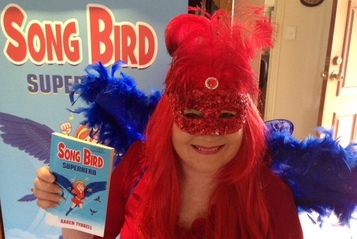 Hi Karen and welcome. Karen, I’ve enjoyed your books in your resilience series, Jo-Kin. What has been your inspiration for writing Song Bird Superhero? Song Bird Superhero is a humorous adventure story inspired by how I empowered myself as a bullied girl. I joined the school choir where singing boosted my self-confidence and self-belief. Then I discovered how much FUN hands-on science was. 2. You have learnt about mental health and resilience yourself through your own experiences. Is this why you write the stories with these resilience themes? I’ve overcome bullying and PTSD using humour as a powerful coping skill. Kids need powerful stories that touch their hearts and their funny bone. I don’t want kids to experience bullying. So I write positive books that connect with kids. I created a pantomime script for Song Bird which I perform as FUN interactive story with music, props, costumes and prizes for best superhero or a winged creature. Afterwards kids complete SUPER fun crafty activities. I perform Song Bird at schools, libraries and festivals. I’m thrilled so many child mental health organizations, teachers and schools have endorsed my humorous books: Bailey Beats the Blah, Harry Helps Grandpa Remember, STOP the Bully, Jo-Kin Battles the It, Jo-Kin vs Lord Terra and now … Song Bird Superhero. That is brilliant, Karen. 3. What inspired you to come up with using Rosellas in your story? Crimson Rosellas are striking birds displaying bright red and blue plumage, the same colours as superheroes. I shortened Rosella Ava Bird’s funny name to Rosie, giving her a relatable name for the reader. To add to the humour, Rosella comes from a family of birds. Her dad, Mr Bird is Ozzie ostrich, the fastest runner on earth, but he’s scared of heights. Mrs Bird is a clucky Little Red Hen type of Health and Safety officer. Rosie’s sister Raven is a punk-rock singer, singing on Song Star with Rosie. 4. How long have you been working on this book? What was the motivating factor for writing Song Bird? From birth to publication it took a year to write Song Bird Superhero. I wanted to write a FUN entertaining adventure story that kids would love. At the same time, kids would learn positive messages that kids can do anything … if they believe. Thank you so much, for joining me on my blog today. Why don't you check out the FREE Teacher Resources and kids' activities, AND the Song Bird Giveaway below... FREE Teacher Resources and kids’ activities for Song Bird!
Includes STEM science, creative writing, flying history, art, craft, maths, literacy, drama, social skills and bully prevention. Download HERE. Song Bird Superhero is now available in bookshops & on Amazon in print & eBook HERE. Song Bird Book Giveaway Let’s celebrate the release of Song Bird Superhero by Karen Tyrrell on Amazon. Comment below to win a FREE signed stamped “Limited Edition” of Song Bird. Giveaway closes on October 20. Good luck! Answer this question: Why do you want to win Song Bird Superhero? WIN Limited Edition on the Blog Tour. Finishes 6pm 2th October 2016Alison Stegert Blog … Write a superhero story with a relatable hero HERE Melissa Wray Blog… World Building … How to Build a Fantasy World HERE Jill Smith Blog… Review of Song Bird Superhero HERE Just Write For Kids Blog … How to write Positive Books for kids HERE In 1992, Asperger’s wasn’t even recognised. It wasn’t until 1994 that it became a recognised disorder. Due to this, it was not widely known. Consequently, many people were not diagnosed and did not receive the help that they needed early in their life. Some, like my son, with High Functioning Asperger’s, slipped through the cracks. My eldest, Brandon, was diagnosed with High Functioning Asperger’s Syndrome at seventeen. Bright, clever, he would chat to anyone. I remember having proper conversations with him at two. He could recite his ABC’s and count to ten. He was a sponge, soaking up information all the time. At five he had moved from picture books to encyclopedias and exploring space via the Space Hubble Telescope (his favourite book at the time), and we were conducting science experiments in the kitchen. The closest thing we got to a story book was The Magic School Bus series. He was always running off and exploring. I taught him to say his name, address and phone number, just in case he did become lost and I couldn’t find him. Luckily I did. As a toddler I had to be careful what I said to him. One time on a walk he asked what a sign we passed meant. It was a Safe House sign. I told him that if he ever got lost, that he should find a house with that sign, tell them his name and his address, and they would bring him home. The very next day he went outside to play while I got the washed clothes out of the machine and into the basket to take them outside to hang up. The next thing I know there is a knock at the front door. A man was standing there with my two year old son in his arms. It was the guy from the Safe House. “Is this boy yours?” I was dumbfounded. My heart was in my mouth. I was only a couple of minutes and he had climbed the fence, and run around the corner to the Safe House. Even now, twenty years on, I can remember the surprise of the man, that this little kid actually knew his name, address and phone number. And that he found the safe house all by himself. As for me, I can still remember freaking out inside, yet smiling and thanking the man for bringing Brandon safely home. I learnt early on, that yelling never worked. I asked Brandon why he had climbed the fence. He said that he wanted to see if what I told him the day before worked. Now he knew that it did, he wouldn't do it again. Looking back, this showed me early on what Brandon was, and is like. I learnt from then on to place boundaries. I had to make sure that I encompassed the entire area, or he would just keep going. He would take things literally. As I didn’t have anything to do with other children before having my son, and only briefly at playgroup and kindergarten, I didn’t know what was considered ‘normal behaviour.’ Except of course, if it was misbehaviour. It was when he started school we really noticed the difference in his behaviour compared to other children's. Often, of course, this was brought to my attention by teachers... and my son. “Why can I talk to the grade six’s and not kids my age?” Would be one thing Brandon would ask. From six his nickname was “The Professor,” because he knew so many facts about subjects his peers didn't know or were even thinking of... like space. Brandon is now twenty three years old. He completed year ten at school and was unable to go further due to suffering crippling anxiety and panic attacks. He is intelligent and very articulate. He can focus for hours and learn new things. He moved out of home when he was eighteen and a half. He is living with his girlfriend of nearly two years. He has recently started his own YouTube Channel (more about that later), and he loves to cook. Children with Asperger syndrome “Children with Asperger syndrome will have many behaviours that are similar to those seen in children with autism. However, those with Asperger syndrome will have no history of language delay, have better fundamental language skills and will generally be of average to above-average intelligence.” People with Asperger syndrome may experience:
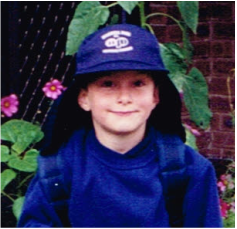 What were some of your struggles when you started primary school? It is often said that people say that people with Asperger's feel alien. Sometimes this is due to seeing their differences. I certainly did. Kids my age (five and up) and often older, would act differently to me. Feeling alien to me didn't go so far as the way the acted differently to me. Often times due to the way I acted or spoke, I wouldn't be accepted into social groups or have any friends. Even teachers were guilty of this. I would finish my work quickly and then sit there bored. Usually this would lead to me disrupt and distract others and this would lead to me getting into trouble. What are some of the things that helped you at primary school? There were some teachers that recognised that I was a bit more advanced then my peers and would find further work for me to do. My prep teacher was good like that. My years 4, 5 and 6 teachers were good like that too. My year 4 teacher recognised my love of science and recognised my capacity to understand and that I wanted to find out about the world and put into his teaching a lot of science. Which was great for me. He also got me into a holiday extension program as well. My passion for science and research and finding out how things work has kept with me until this day. What were your greatest challenges at primary school? People. People have always been my greatest challenge. I don't understand them. Others just understood eye contact and other social norms. I never got it. So I usually ended up offending them. So sometimes I ended up getting punched in the face. 'Boys will be boys,' were the usual comments from teachers at the time. Or I’d get into trouble for bugging the other kids by doing annoying things to them. They would get really mad and I wouldn’t understand why. Was high school more difficult than primary school? If so, in what ways? Puberty set in. This created some difficulties. Young guys generally are bad at talking to girls. Couple that with someone who can't understand people in general. Bad things will happen... or hilarity. Depends on your point of view. Me. I was mortified. Everyone else laughed. I was the running class joke. School work got more difficult. The work wasn't the issue. It was fact that I have poor time management skills and time pressure of assignments. And the fact that I was so different from everyone. And as humans, being the way they are, anything different needs to be bullied. 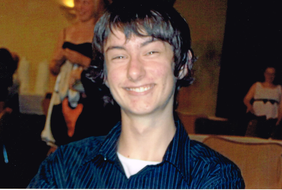 How did it make you feel when you were at school and you knew that some things just went right over your head? It made me feel stupid. I could understand maths, science and physics, my favourite subjects. But when it came to people... I could never figure them out. What are some of the things that teachers did that helped you at high school? In high school I didn't have teachers that helped. Class sizes were too big for them to worry about organising extra work for one student. As usual, I'd finish my work quickly and end up disrupting the class again. It wasn't until I reached year eleven, that I couldn't cope with school anymore. I ended up pulling out after only a few weeks. My anxiety was getting really bad. I was getting panic attacks regularly. The crowds at school and on the bus would freak me out. I felt exhausted. The next year I went to a new school to try year 11 again. It was here, within six weeks, that the learning coordinator suggested that I may have Asperger's and I went to get diagnosed. That school was really helpful. I could get out of class earlier so that I could get to my next class before the halls got full. They gave me extra work. It challenged me. There were a lot of people there with Asperger’s, so the teacher and learning support team were very understanding. The only reason I ended up not being able to finish was that, because I didn’t get the help I needed earlier on, my anxiety levels were through the roof and I couldn’t cope with school anymore. 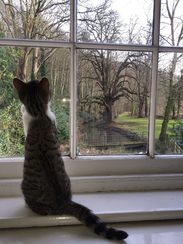 So you went to get diagnosed. What book did the psychologist, who was doing the testing, give you to read in the waiting room? All Cats Have Asperger's by Kathy Hoopmann, a children's picture book. What did you think of it at first, and then after you had read it? I felt insulted, funnily enough. But I read it and identified that everything in it made sense. Every word that dripped off the page said, 'This is me. I am a cat.' I don’t like change. I like routine. I feel like I don’t fit in anywhere. I like to be myself, or in very small groups, and I don’t like crowds. I hate loud noises and bright lights. How did you feel after being diagnosed? Initially I was very unsure. The world hadn't changed. I hadn't changed. I just had a name for the way I am. I did take advantage of it (having Asperger's) for a while. But I learnt that it was not going to work. I had to change my behaviour. After a while I came to realise that it was an explanation for the reason I am the way I am, and why I am so different from most other people. It helped me understand myself and I also found out what the different behaviours etc. that I had to learn. So that answers my next question. Were you ever bullied at school? Oh yeah! I have the scars and mended broken bones to prove it. Did you tell anyone about what was happening? No, I didn't. I took everything literally. For example, if someone said, 'If you tell anyone, I will kill you." So I would not tell anyone as I did not want to die. I really did think that he was going to kill me.  What has been the ongoing effects of what you went through? Post-Traumatic Stress Disorder (PTSD). If there are certain sensations on my skin, I can't speak. If someone gives me a playful tap on the shoulder for instance, it will cause me to have flashbacks of getting punched. I have to tell myself that the person didn't mean it. Other things are my ribs still hurt and my shoulder, I lost count the amount of times I got punched and kicked over the years at school. Do you understand what people are talking about, especially when it comes to jokes and interpreting facial expression? I've had to work at it. I've had to learn what facial expression goes with their reaction and emotions or how to react to body language and tone of voice. Then I've had to learn what to do in various circumstances when the person doesn't act the way that fits in with those parameters... but usually I just avoid those sort of people. You have tried to complete further education since leaving school but have been unsuccessful. What, specifically, have been the main issues that have hindered you from completing these courses? I tried two courses online. I need a physical classroom to go to during a specific time, with a teacher that understands my needs. I need routine. I also need a small classroom and not to many people. It needs to be fairly quiet. Even just the rest of the environment needs to be not crowded. So no crowded hallways. I used to make a joke that was true though at the time. The ideal school would be one where there are no other kids. Just routine, structure, quiet. You have been through periods of depression and having suicidal thoughts since you were fifteen. You are now 23 years old. What have kept you going through each dark patch? The support of the people around me. It kept me going, and reminding me that I am loved and that I have a lot to offer. I got the professional help that I needed as well. Can you share an experience that shows how having Asperger’s affects you in everyday life? I could be walking through a Shopping Center. I look at everything and everyone. I get overwhelmed by the details I see. It's because I notice everything and I can't switch it off. What were some of your favourite books when you were a child? The Hubble Space Telescope, and the Artemis Fowl series – which is still my favourite - as it was interesting world that Eoin Colfer created. What would you tell your ten year old self? People are not as scary, complex or daunting as they may seem. They have patterns the same as you do. Some parents are concerned about having their child labelled-Whether it may be with Asperger's, A.D.D., Dyslexia etc. What would you say to them? If there is sufficient reason to say how they act is within the symptoms of those disorders, it can be very helpful for them (the child) to know why they act the way that they do, and why their brain is the way it is. They will also be able to have better access to the most appropriate help that they need. This will help them in the long run so that they can learn way earlier than I did, how to cope with situations, and also what their needs are and how to help them to prepare for social situations, school, work, and adulthood. It helps parents, the school, teachers, and employers as well. What, would you say, are your strengths? I can research the daylights out of a subject. The other thing is the ability to focus on a single task for hours, as long as I have proper guidelines in place. What do you enjoy doing now? Same thing that I have enjoyed for a lot of years... with a twist. As an avid gamer and lover of space, I play a game called Elite: Dangerous and I film while I'm playing and I give commentary as well. If you want to, you can check it out on my YouTube Channel – Outer Rim Colonists. (Warning: M rating) Update: February 2017. Brandon has enrolled in a TAFE course in Mechanics, and he is undertaking work placement in a local mechanics workshop. Three fun facts: Growing up I wanted to be a pilot. I have three piercings – eyebrow and ear. I have always had a fascination with dragons. I hope that Brandon sharing his story with you has shed some light on what it is like living with Asperger's. Please just remember that this is his story. Everyone on the Autism Spectrum is different, with their own unique set of symptoms.
Feel free to share your stories, comment or contact me via email. For further information please check out the Tony Attwood website. Professor Tony Attwood is a clinical psychologist known world wide for his knowledge of Aspergers Syndrome. |
AuthorOn my blog you will find: Categories
All
Click to set custom HTML
|
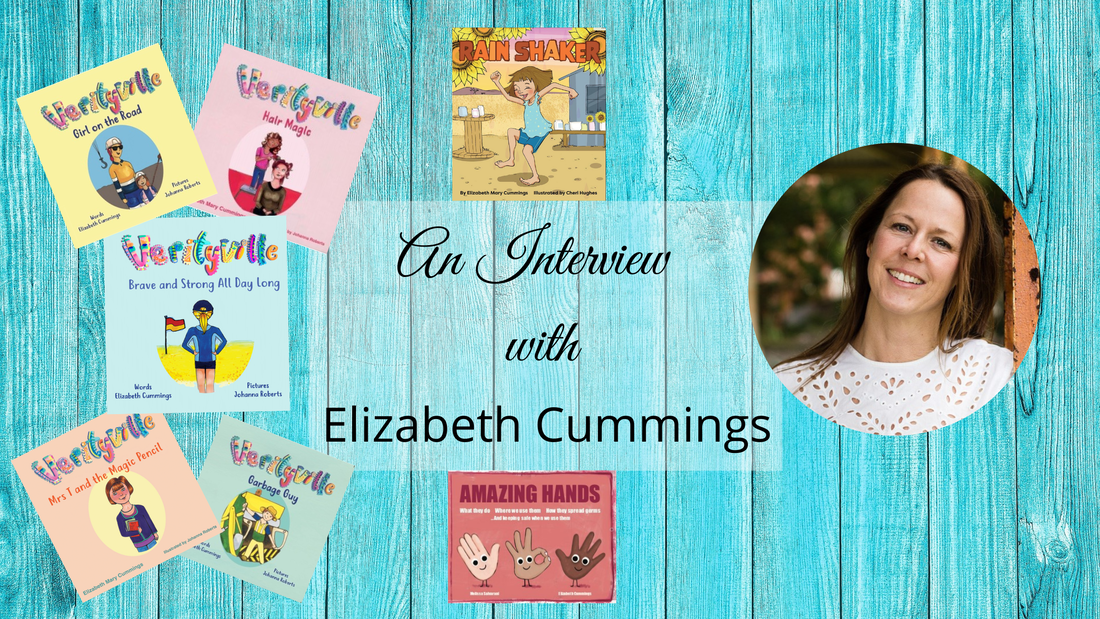
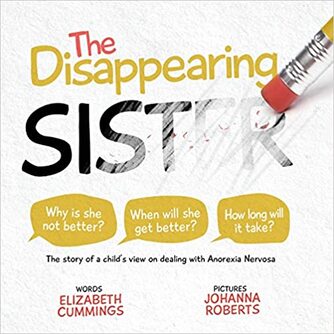
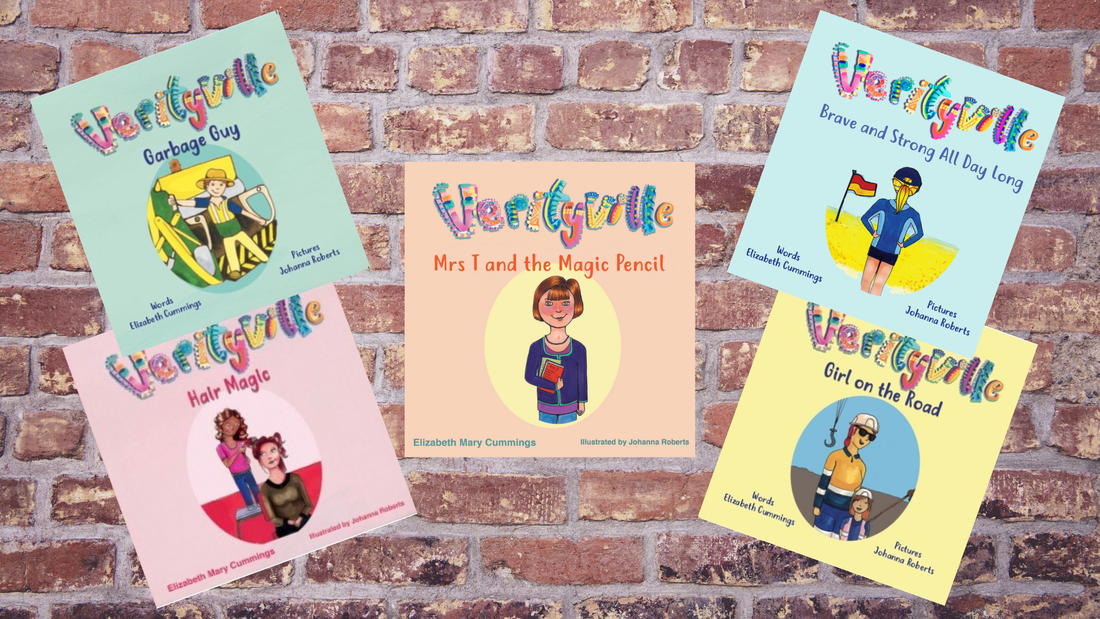
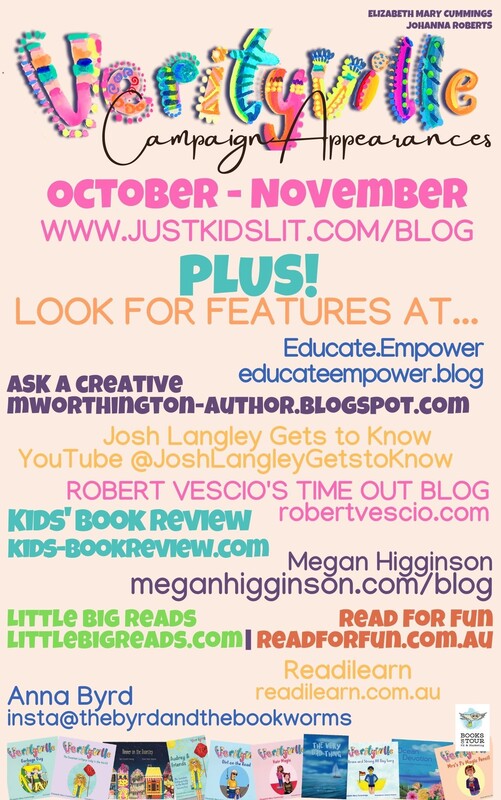
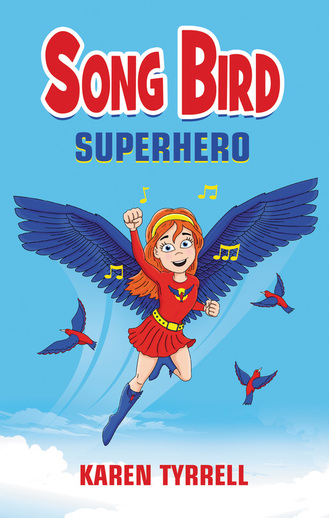
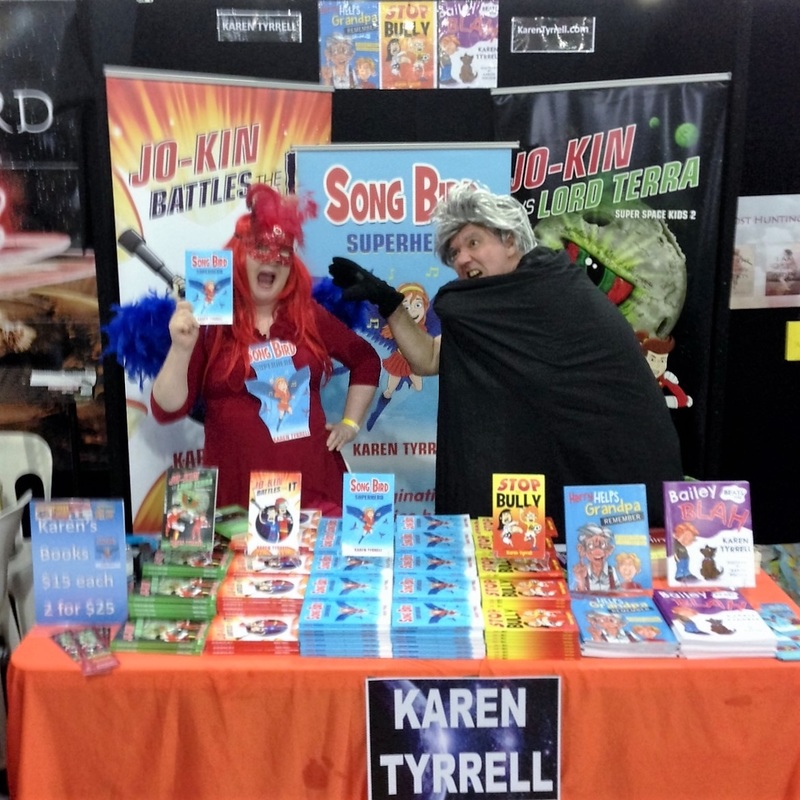
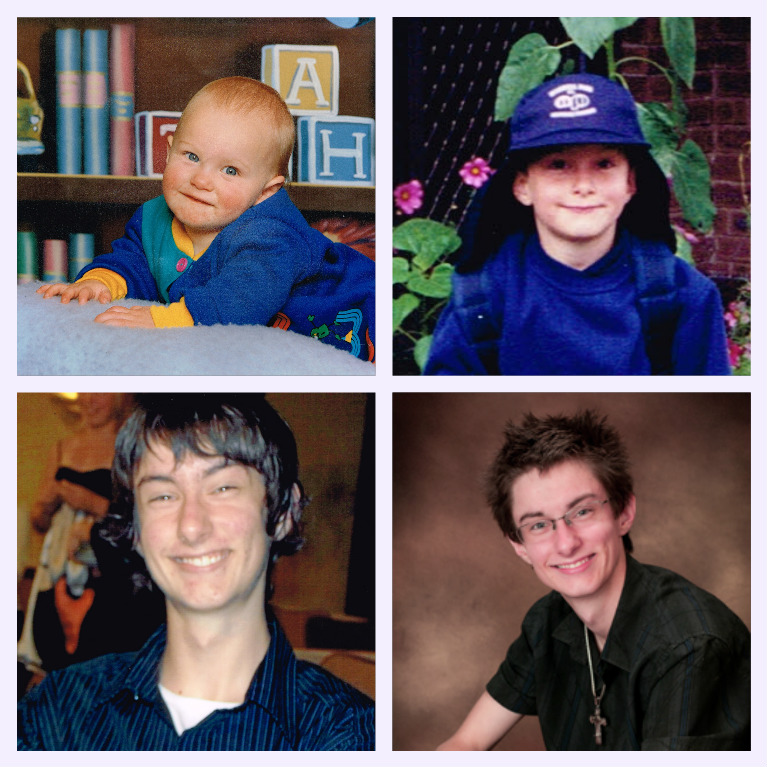
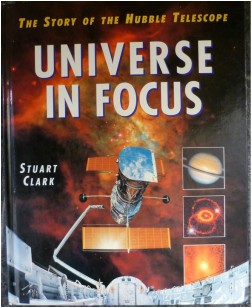


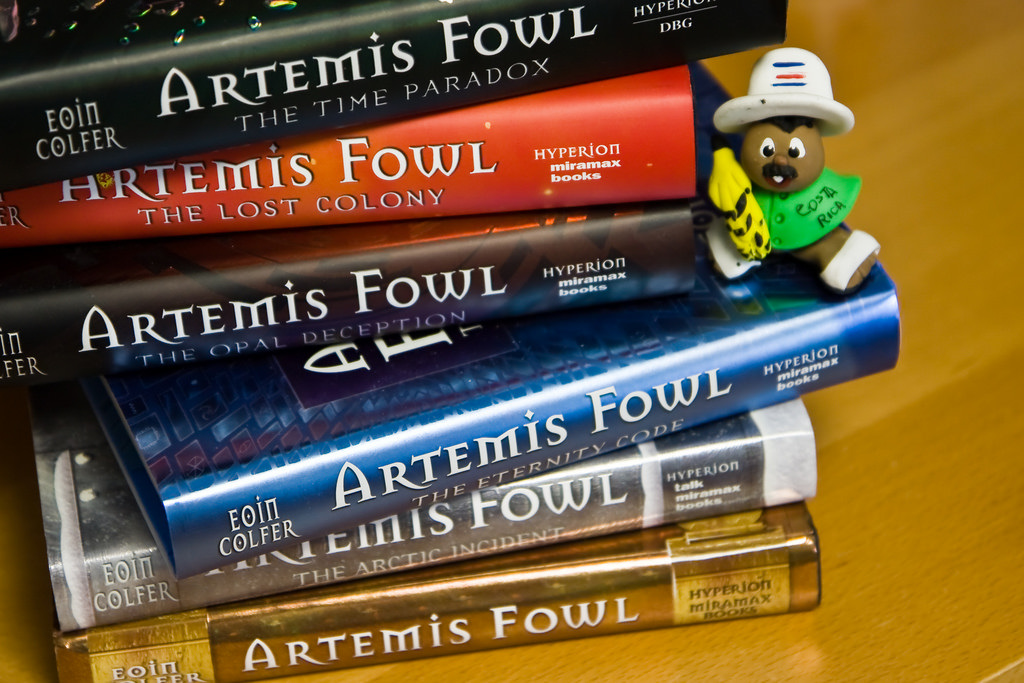
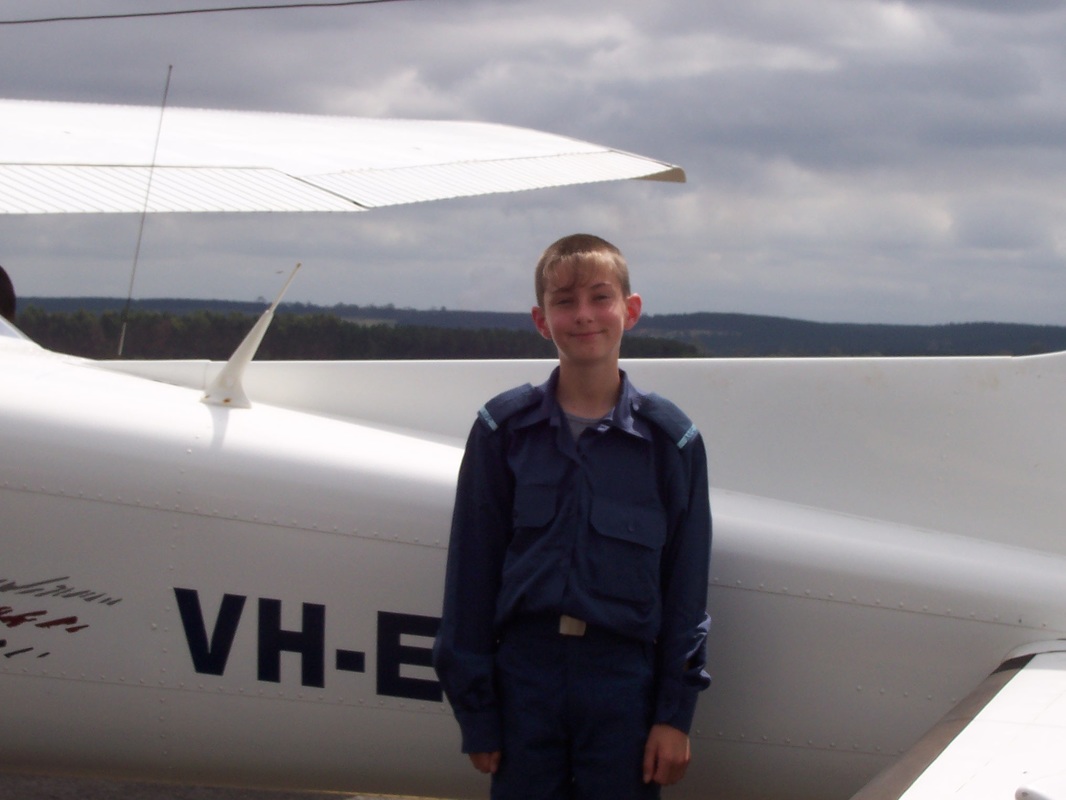
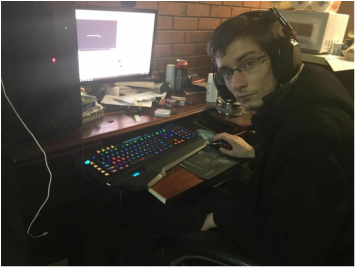
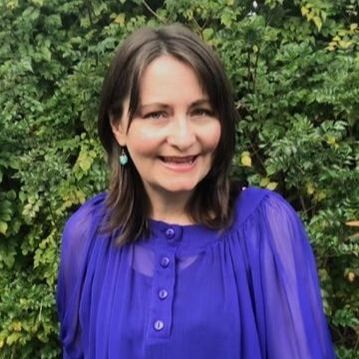
 RSS Feed
RSS Feed